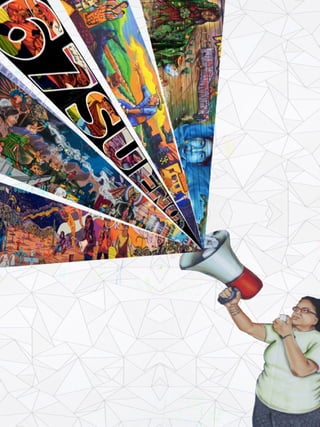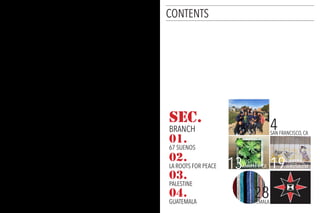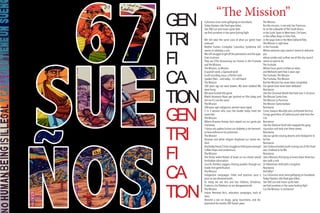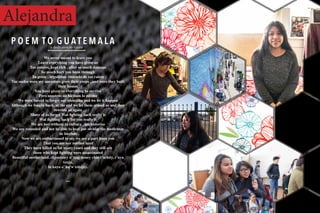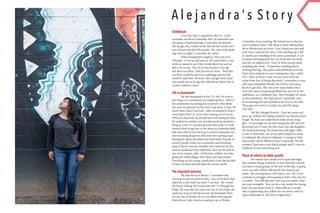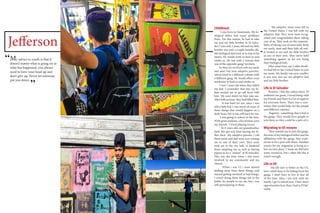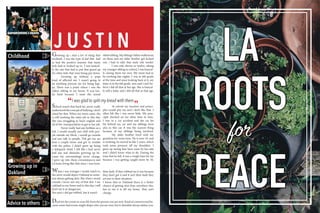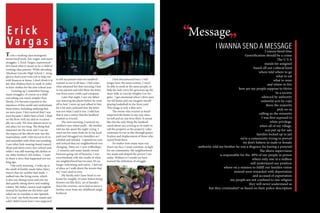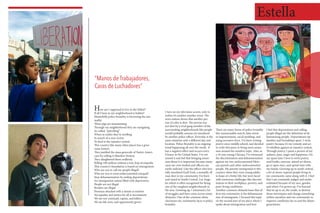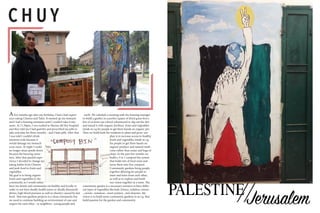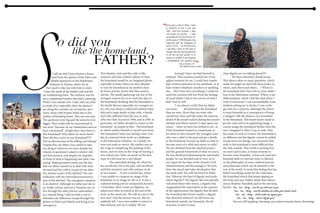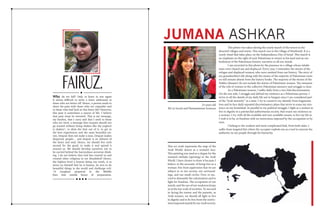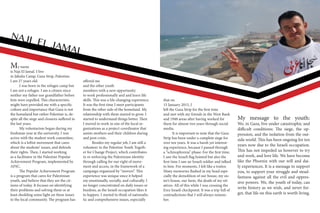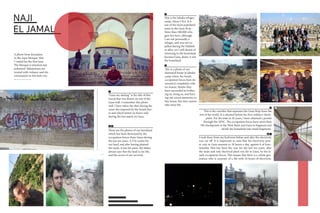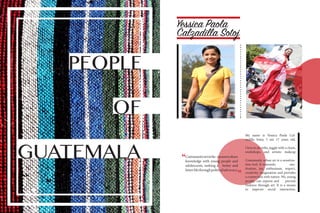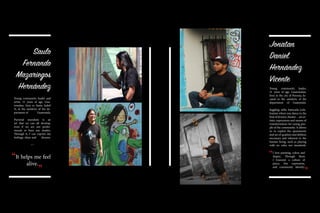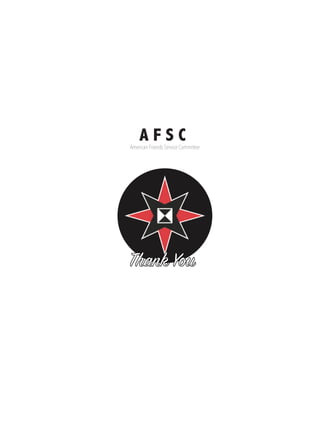Jefferson shares his experience growing up in El Salvador and migrating to the United States as a teenager. In El Salvador, he witnessed his biological father's murder by gangs at age 7 and was raised by his aunt and uncle. Though he enjoyed school and friends, gang violence was a daily threat. At age 13, the gangs tried to recruit him, prompting his migration to the US to join his mother and brothers. In Oakland, he feels safer without the gang threats and has more opportunities through school. He advises other youth not to let past hardships define them and to maintain a positive attitude.
